Oceans
-
 Oceans
OceansOcean current simulations could narrow Flight 370 search
Aircraft debris found on Réunion Island in the western Indian Ocean could originate from the northern half of Malaysia Airlines Flight 370’s search area, ocean simulations show.
-
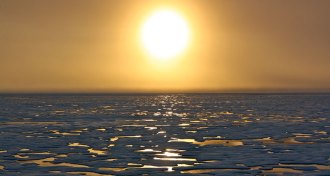 Climate
ClimateIceless Arctic summers now expected by 2050s
The Arctic Ocean will have its first ice-free summer in the 2050s, nine years earlier than previously forecast, according to improved simulations.
-
 Ecosystems
EcosystemsEncased algae create kaleidoscope of color
The skeletons of diatoms, algae that produce oxygen but also form toxic blooms, can create beautiful microscopic designs.
-
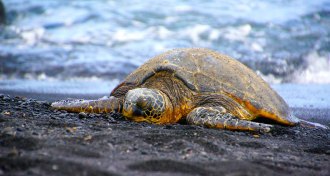 Animals
AnimalsSea level rise threatens sea turtles
Sea level rise is causing coastal areas to be inundated with water. Even short periods of being wet can kill sea turtle eggs, a new study finds.
-
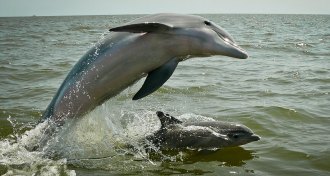 Animals
AnimalsEyewitness account of a dolphin birth takes a dark turn
Scientists witnessed the first wild birth of a bottlenose dolphin — and an attempt at infanticide.
-
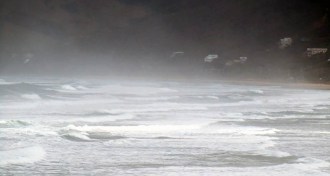 Oceans
OceansBlooming phytoplankton seed clouds in the Southern Ocean
Booming phytoplankton populations spark cloud formation in the Southern Ocean.
By Beth Mole -
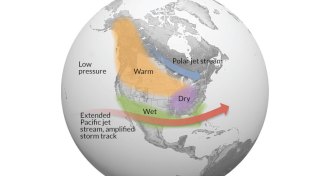 Climate
ClimateCurrent El Niño coming on strong
Meteorologists expect the ongoing El Niño to strengthen in the coming months and alter weather patterns worldwide, including bringing potential drought relief to California.
-
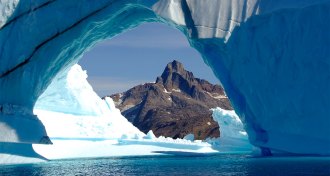 Climate
ClimateGreenland’s out-of-sync climate explained
Small variations in the sun’s activity cause big changes in Greenland’s temperatures decades later by altering ocean currents, new research suggests.
-
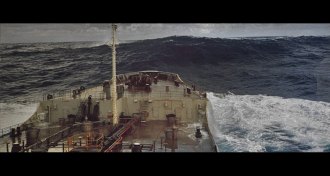 Physics
PhysicsRogue waves don’t always appear unannounced
Scientists may be able to forecast the arrival of anomalously large ocean swells, suggest scientists who analyzed the moments before rogue water waves and freak light flashes.
By Andrew Grant -
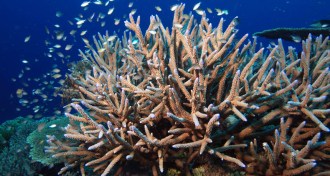 Climate
ClimateReal estate is tight as marine species move to cooler waters
Marine species migrating amid global warming face shrinking habitats in cooler locations.
By Beth Mole -
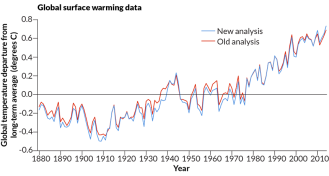 Climate
ClimateGlobal warming ‘hiatus’ just an artifact, study finds
Skewed data may have caused the appearance of the recent global warming hiatus, new research suggests.
-
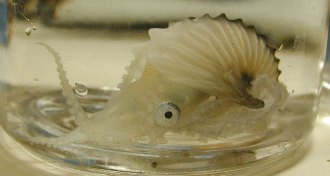 Animals
AnimalsWealth of cephalopod research lost in a 19th century shipwreck
Nineteenth-century scientist Jeanne Villepreux-Power sent her research papers and equipment on a ship that sank off the coast of France, submerging years’ worth of observations on cephalopods.